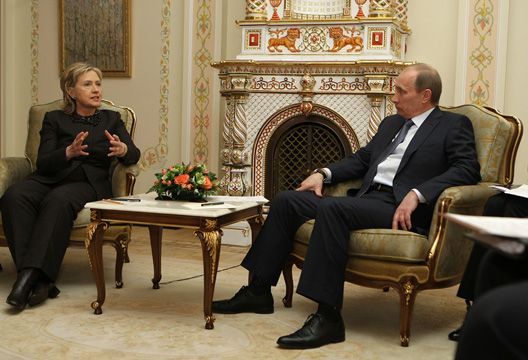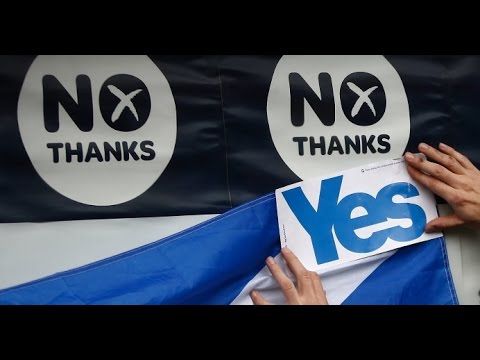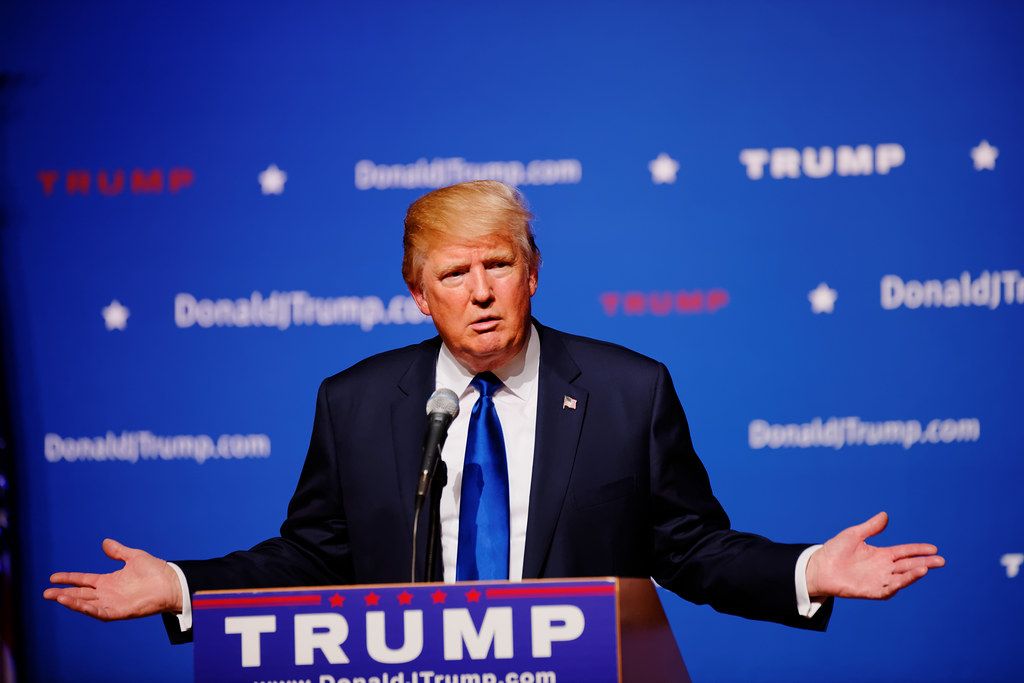Introduction
The following scenarios are narrative sketches of possible future worlds. They have been designed with the following question in mind:
“What will the UK government’s strategic priorities be on 1 July 2019?”
The scenarios were developed by Aleph Insights using a structured, collaborative, driver-based scenario generation method. They are not forecasts, but narrative scenarios. Narrative scenarios are a tool that is useful for contingency planning and the collaborative identification of key concerns, opportunities and threats. They are not, and should not be, assessed in terms of their probability.
In the opinion of the scenario developers, the key drivers of the UK’s strategic priorities in 2019 will be: UK policy, the European Union, mainstream UK politics, the UK economy, political extremism, UK regionalism, the international scene and the global economy including international trade. Each of the following scenarios is built on a slightly different set of assumptions concerning these drivers, and is set in the middle of 2019.
The first scenario is the 'baseline', corresponding to a set of assumptions that (in the view of the developers) are most plausible. However, it is not a forecast, and should not be considered in any sense 'likely'. The other four scenarios represent plausible alternatives based on changed assumptions. These should be assumed to follow the baseline where not explicitly stated otherwise.
Baseline Scenario - Silver Linings
Prime Minister May.
Source: UK Home Office. Theresa May became Conservative leader and UK Prime Minister in October 2016. She won the leadership running a campaign which promised to unite the Leave and Remain factions of her party, and to heal divisions within the country. Her stated aim for EU negotiations was to complete the UK’s exit while securing strong trading deals and managing EU immigration. Wrangling within her own party, the difficulty of achieving any cross-party consensus, threatened legal challenges and arguments about the roles of the devolved governments (particularly Scotland and Northern Ireland) in the negotiating process, forced her to delay triggering Article 50 until April 2017.
Since then the UK has had mixed success in developing new trade arrangements with Commonwealth countries, the US, China and India. Cuts in corporation tax and other incentives have maintained and even increased inward investment from some sources, but it is recognised that the UK economy will remain dependent on relatively-free EU trade for the foreseeable future. Throughout 2017 and 2018 the UK Government was involved in sometimes-heated negotiations with EU members over low-tariff trading arrangements to protect the strength of British exports to the common market. France and Germany are losing patience with the UK’s hard stance on trade negotiations and freedom of movement, but Scandinavian countries and the Netherlands are sympathetic to the UK's position. Overall, little progress has been made. A three-month extension to secession talks has been granted, moving the deadline for the UK exiting the EU to the end of 2019.
The EU remains politically unified. Despite calls from Eurosceptics within the Netherlands and France for exit referenda, there have been no copycat plebiscites in other EU countries. EU reform has not progressed significantly and the Eurozone continues to adapt to the UK's decision to leave. The Global economy continues to enjoy positive growth, but the Eurozone is seen as a more risky investment area. In this context the UK’s decision to decouple from Europe is seen as a potential future benefit and there are signs that it is beginning to see some diverted investment. However, the pound and the euro both remain volatile and are yet to recover to pre-referendum levels against the US dollar.
At home the UK is feeling the effects of a mild recession, but analysts are predicting a return to growth once EU negotiations are completed. The finance and manufacturing sectors have suffered the most from the increased costs of international collaboration and reduced exports to traditional trade partners, but confidence is starting to build again. The Government has been forced to continue its regime of austerity, cutting public services in the face of reduced tax receipts. Unemployment has steadily risen from 5% in 2016 to a peak of 8% in late 2018, but the number of jobless fell in the last quarter. Apart from stagnating wages, those still in work have noticed little difference. Pragmatism and necessity have led to the maintenance of much EU law, and the creation of new legislation tends in practice to be synchronised with that of the EU. UKIP continue to be vocal about the EU meddling in UK affairs and Westminster's inability to replace EU legislation with new UK law. Some Eurosceptics continue a narrative about the 'Brexit dividend', while others are beginning to become frustrated in light of Westminster’s apparent impotence to exploit on its hard-won 'sovereignty'.
Scottish Independence on the cards.
Source: Scottish Government. In Scotland the desire to remain in the EU has been capitalised upon by the SNP, which has successfully managed to associate the promise of a strong Scottish economy with the call for Scottish independence. Westminster has conceded to a second Scottish Referendum to be held later in 2019; most polls and pundits believe it is likely to be a comfortable win for the independence campaign. In Northern Ireland tensions have been increasing over border issues, at times this tension has erupted into low level sectarian violence. In other parts of the UK, there are increasing calls for further devolution of power from Westminster to regional governments, local authorities and elected City mayors. The antipathy between rural and urban Britain, brought to the fore in the referendum, continues to increase: anti ‘metropolitan elite’ sentiment has led to occasional violence against foreign students in some regional university towns.

US and Russia stalemate. Source: Russian Government. European nations are desperately petitioning through NATO to find an international solution to the flow of radical fighters into Europe, while continued fighting in Syria and Iraq continues to push refugees into Europe, and many continue to die at sea seeking a better life. The UK’s significant military, diplomatic and international aid efforts in this area ensure that it continues to be involved in multilateral decision-making on these issues. It maintains active cooperation with the EU on trying to alleviate the plight of refugees and reduce their migration into Europe. Presidents Clinton and Putin are at loggerheads over how best to intervene in an increasingly turbulent Middle East and North Africa. US appetite for appeasing Russia is exhausted and there are fears of potential flashpoints with NATO, while some analysts are predicting a proxy war in Syria. Russia continues to exploit a weakened Europe, manipulating energy supplies, particularly gas, in an attempt to extract concessions.
Policy Implications
Under this scenario, the UK government’s main strategic priorities are to finalise the terms of Brexit and manage its economic impact. Most economic and foreign policy is focused on seeking to exploit the opportunities offered by the UK’s additional freedoms, make favourable trade deals with alternative partners, and establish a business and regulatory climate that will make the UK a relatively more-attractive market for international investors and consumers. However, the UK remains significantly dependent on trade with the common market, and establishing the terms under which we exchange goods, services and people with this market is the UK’s overriding concern.
Conflict in the Middle East continues to displace people to Europe, forcing the UK government to develop strategies to reduce the flow of migrants and refugees. At home pressure is mounting to tackle extremism and radicalisation and the movement of jihadist fighters. Finally, the UK must prepare for Scottish independence and develop policy and legislation to support further devolution of powers to regional assemblies and local government.
Scenario 2 - Business as EUsual
This scenario differs from the baseline in our assumption about the shape of the UK’s exit from the EU. In this scenario, Theresa May wins a general election in April 2017 on a mandate to move the UK into the EEA along the lines of the Norwegian model. A new government department - the Department for EU Transition - is created to pursue this agenda. However, the political importance of curtailing immigration means that the UK cannot adopt this model wholesale. The final terms of the agreement allow the UK to impose quotas on immigration from the EU (the intention being to manage this through a points-based system), but the UK does not have full access to the single market for services. The most significant concession the UK has had to make is to accept a prohibition on UK-based companies dealing in euro-denominated financial assets, a trade which currently earns the UK billions of pounds a year.
Incredulous Carswell.
Source: Flickr user Steve Punter. Not everyone is happy with the arrangement. Many are highly critical of the deal due to its impact on the UK’s financial services industry. Meanwhile, those opposed to immigration see the deal as too lenient - it still allows tens of thousands of EU migrants to come to the UK each year, after a referendum result heavily driven by widespread opposition to this flow of people. In particular, this has strengthened UKIP’s support on the back of a ‘betrayal’ narrative, and the leader Douglas Carswell vows to ‘finish the job’ if his party wins power. There is increased right-wing extremism, with propaganda and violent incidents particularly targeted at immigrants from the EU.
However, unlike the baseline, in this scenario there is somewhat less support for regionalist parties due to the relatively-limited practical impact of leaving the EU. The Scotland referendum, due to be held later in 2019, is looking like a close-run thing rather than a dead cert for independence, given the uncertainty about how quickly Scotland could join the EU and under what terms. Meanwhile, due to sensitivities surrounding the UK’s border with Ireland, border controls are primarily implemented in mainland British ports and airports servicing travellers from Northern Ireland, and tensions there continue to be mediated through political rather than violent processes. In comparison to the baseline, UK relations with the EU are stronger as a result of a satisfactory conclusion of negotiations within the Article 50 window, and the resultant dissipation of uncertainty means that the economic impact of Brexit is slightly lessened. But maintaining the long-term competitiveness of the UK’s services sector presents policy challenges.
Policy Implications
Under this scenario, the UK government’s main strategic priorities are to manage the economic impact of Brexit. Most economic and foreign policy development is focused on seeking to exploit the opportunities offered by the UK’s additional freedoms, make favourable trade deals with alternative partners, and establish a business and regulatory climate that will make the UK a relatively more-attractive market for international investors and consumers. Effective policy levers to control the scale and nature of EU and non-EU migration are still being sought.
Scenario 3 - These fractured isles
No Surrender. Photo: Rossographer This scenario differs from the baseline in our assumption about strength and consequences of UK regionalism. In this scenario, in 2019 the UK’s departure from the EU has sparked greater sectarian discord in Northern Ireland. The implications of Brexit on the border with the Republic of Ireland are a major concern to all parties; for now it remains fully open. Sinn Féin propose, and actively pursue, a halfway house in the EU: NI would remain part of the UK but have special concessions from the EU on trade and movement. This would allow easy trade with the Republic of Ireland, and provide many of the same freedoms as the EU. The Unionists are vehemently opposed to the suggestion, viewing it as a step closer to a unified Éire Nua.
Frequent walkouts and resignations on both sides make NI politics fractious and unpredictable. The NI assembly is paralysed by this single issue. Irish nationalism is on the rise and it is met by increased unionist sentiment. Some parts of Belfast are descending back into regular outbreaks of sectarian violence and there is a sense that the turmoil is spreading. The US attempts to engage with the situation through arms-length mediation, but it has little success in stemming violence. For the time being, NI security and police forces are able to contain and manage the situation, but the UK Government is making contingency plans to support local forces by deploying military units - if called upon - to assist with peacekeeping. European efforts to become involved in any negotiations are met with strong criticism from Unionists who perceive the EU as ‘meddling’ and encouraging the Republican cause.

Scottish Independence. Source: In Defence of Marxism. There is a greater negative impact on the UK economy in this scenario. The growing NI crisis and legislative vacuum around border controls increases market volatility, weakens the pound and turns away more foreign investment. As the recession bites, greater public service cut-backs are announced in the Chancellor’s budget. Food Banks are increasingly needed in many urban areas, and unemployment now exceeds 10% for the first time since 1993.
Scottish nationalism has led to overwhelming support for the SNP. The imminent referendum on Scottish independence is considered to be a foregone conclusion. UKIP is emboldened as the newly re-branded “UK Party” and is stealing support from the right and left of British politics. It maintains a compelling narrative that England is under-represented in Government often citing reduced government spending in poor areas as a sign of neglect. Support for the two main parties is at an all time low in modern political history.
Policy Implications
In this scenario in addition to the need to respond to a deepening recession, UK government policy is focussed on dealing with the worsening security situation in Northern Ireland. There is also a lot of work to do in order to prepare for Scottish independence, which is unlikely to be an amicable process. The issue of managing two new borders has uncovered a lot of practical and legislative challenges. Westminster must also consider how to devolve further powers to the regions and operate in a more decentralised fashion.
Scenario 4 - Should we stay or should we go?
This scenario is characterised by political uncertainty. It is 2019 but the UK has not yet invoked Article 50. A general election in April 2017 produced a hung parliament and a Conservative minority Government unable to form a governing coalition. The mainstream political parties have fractured into internal blocs: Labour along broadly ‘new’ and ‘old’ lines, and the Conservatives into the ‘small c’ conservatives and the free-market ‘small l’ liberals. Despite the mandate from the referendum, the European Union Bill of 2017 was narrowly voted down by parliament - chiefly by a coalition of Remainers-on-principle, MPs of strongly Remain constituencies, and MPs who now believed the conditions had changed and that for the good of the country the referendum decision (with its relatively-slim margin) should not be acted on. The Prime Minister has triggered a general election to be held at the end of 2019 with a view to ending the deadlock, but the outcome is highly uncertain. Calls for ‘national unity’ have gone unheeded and finding any common foundations for a stable coalition has been impossible.
Scotland looks abroad. Source: US Dept of State. Political deadlock has had serious consequences. The UK economy is in a deep recession. Politically, it is something of a laughing-stock. The pound is hovering at near parity with the US Dollar and UK government debt has been downgraded to BBB. Relations with the EU are acrimonious as the UK’s executive capability is hamstrung, and the 27 other members are looking at ways of forcing the UK out, something which (since the UK is still a member) turns out to be a significant constitutional challenge. Scotland now looks near-certain to vote for independence in its upcoming referendum. UKIP and the extreme right, ‘betrayed’ by the parliamentary process, have become more vocal, and marches and rallies have boiled over into riots.
Policy Implications
In this scenario, the Government is struggling to pass any new legislation or set policy direction. The civil service lacks direction and certainty of instruction. Policy U-turns are a matter of course. The UK government’s main strategic priorities are to tackle the severe recession, reduce public expenditure and develop options for a new relationship with the EU. Managing increasing levels of civil unrest have also become a focus of government activity.
Scenario 5 - On the Brink

President Trump. Source: Flickr user Michael Vadon. This scenario differs from the baseline in our assumption about the international scene. In this variation Donald Trump was elected President in the November 2016 election and the US has pursued a more confrontational foreign policy agenda, resulting in a hardening of attitudes between the West, and Russia and China. Since Trump’s election the US has also followed a course of increasing military intervention in the Middle East and North Africa in an attempt to tackle extremism and bring stability to the region. The US has naturally looked to the UK for material and political support. Despite (and in some cases because of) this new Western military coalition, US-EU relations are strained.
Disquiet amongst young Muslims.
Source: Flickr user Jamie Kennedy. There is widespread domestic opposition to UK involvement in military operations in the Middle East. Levels of anti-Western sentiment among British muslims has increased. The perpetrators of a firearms attack on a London train station claim on social media that they were compelled to act in response to British atrocities against muslims. The individuals responsible had links to a Paris-based terrorist cell, which has fuelled rising Islamophobia and conflated it, to some degree, with anti-European sentiment - especially in the context of high levels of migrants and refugees entering Europe from North Africa and through Turkey. The increasing popularity of British far-right extremism is matched by the radicalisation of young muslims, who feel they are threatened and excluded by society. Security services report that all forms of extremism are becoming more coordinated internationally. This situation is mirrored in other European countries and is driving US policy on immigration and travel to focus on the explicit profiling of muslims.
The Dragon and the Bear. Source: Kremlin Press Office. Russia, emboldened by a weaker EU, is highly critical of US foreign policies and increasingly willing to challenge ‘America’s puppets’ in Europe: the UK, France and Germany. Putin has openly engaged with China to form agreements to limit trade to the US. The US respond with embargos on some technical goods from China, and protectionist rhetoric is prominent. While this provides a short term boost to US and UK manufacturing, the effects on foreign investment to Europe are felt acutely. The US and Europe are struggling to deal with increased oil and gas prices, as Saudi Arabia cuts production and Russia squeezes gas supplies. Energy sector pundits are warning of a possible 1979-style energy crisis over the winter of 2019. This trade war is a key driver for the world moving into a recession of similar severity to that triggered by the 2007-8 global financial crisis. The Bank of England Governor warns that the economy will see no real growth between 2010 and 2020.
Policy Implications
The huge negative impact on the UK economy means that seeking access to the EU common market is a principal strategic priority, even at the price of heavy concessions in areas such as freedom of movement. Efforts to stimulate the economy are the primary focus of government policy, but political attention has been repeatedly diverted by the many overseas crises and the pressing need to tackle the threat of terrorism and violent extremism.
